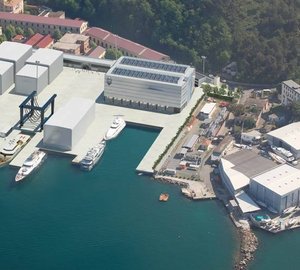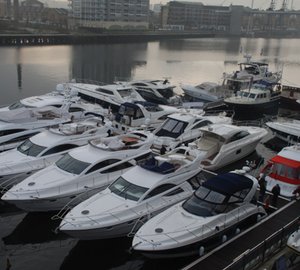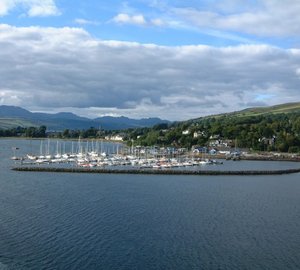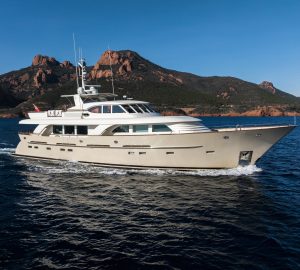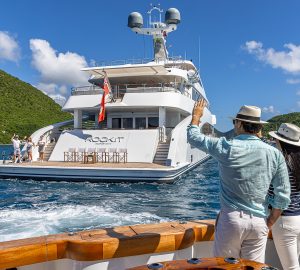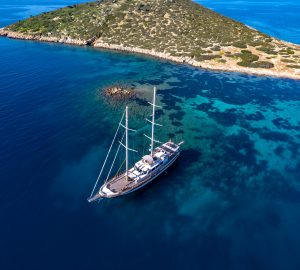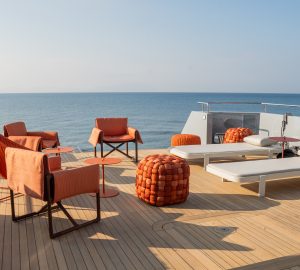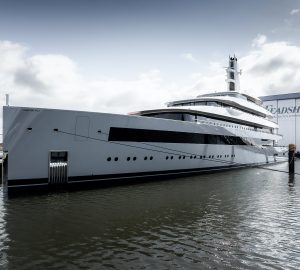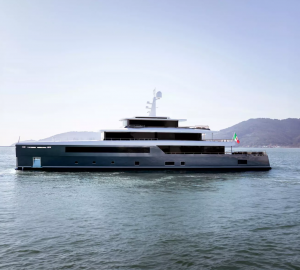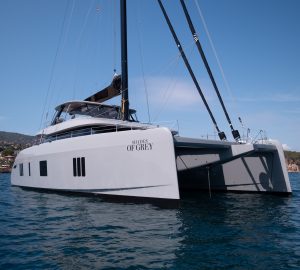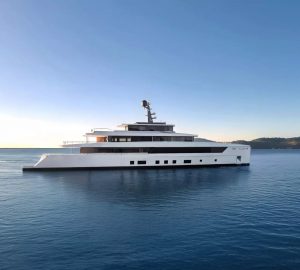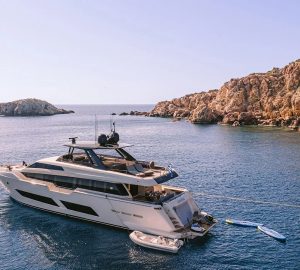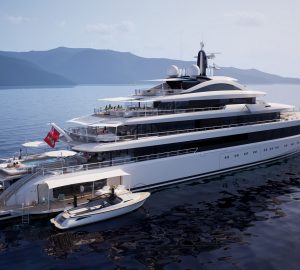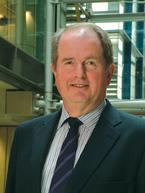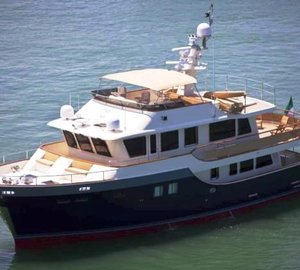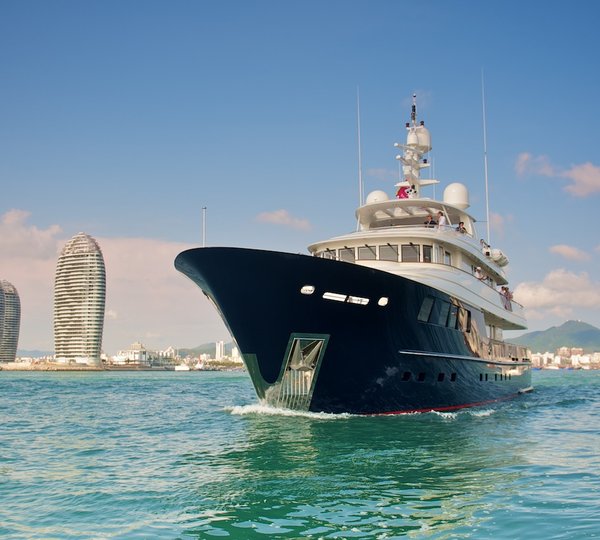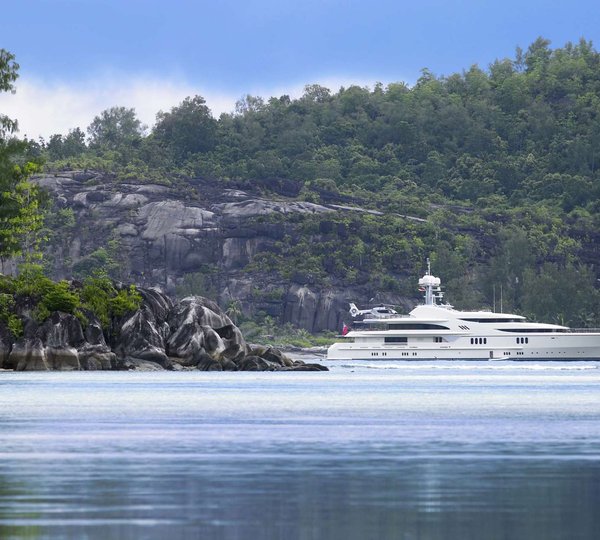Professor John Carlton DSc BA CEng CMarEng FIMarEST FIMechE MRINA, Professor of Marine Engineering, City University London and, until his retirement in 2010, the Lloyd’s Register Global Head of Marine Technology and Investigation, has been appointed the 109th President of the Institute of Marine Engineering, Science and Technology (IMarEST) at its AGM today (10 March). Malcolm Vincent BSc(Hons) MSc CEng FIMarEST has been appointed President Elect.
John Carlton takes over the reins of office from Rear Admiral Nigel Guild CB PhD DEng CEng FREng FIMarEST. Professor Carlton’s first task as President will be his speech tomorrow (11 March) at the IMarEST 108th Annual Dinner with IMarEST members and their guests representing the global engineering, science and technology sectors of the maritime industry in London for the occasion.
“It is a great honour and privilege to be appointed the 109th President of the Institute of Marine Engineering, Science and Technology with its 15,000 members in over a hundred countries, and 50 active branches around the world,” says John Carlton. “Moreover, I would like to pay tribute to Rear Admiral Nigel Guild whose enthusiasm for, and work on behalf of, the Institute and its members has been inspiring. Indeed, I look forward to furthering some of the initiatives that he started during his year in office.
“While this coming year is likely to be one of change, an Institute like ours needs to serve the marine industries in such a way that that we are perceived to be of value and an essential part of their endeavours. If we do not, then we undermine the reason for our formation in Stratford, in East London, during the late 1880s and our current existence. During this year I believe that it is important, and look forward to encouraging the strengthening of our technical image and value in engineering, science and technology through all of the opportunities available to us.”
An enthusiastic supporter of the work of the Guild of Benevolence of the IMarEST, John Carlton will be encouraging guests at the Institute’s108th Annual Dinner to give generously to the Guild’s Titanic Centenary Appeal. The tragic sinking of the RMS Titanic on 15 April 1912 resulted in legacies that have lasted for nearly a century both in terms of improvements in safety and also in the establishment of a charity – The Guild – which is still hard at work supporting marine engineers and their dependents worldwide, with expenditure in the form of grants over the past five years alone reaching in excess of £1 million and eager to continue this invaluable work well into a second century.
About the 109th President of IMarEST
Following a long and distinguished career, and after his retirement as Lloyd’s Register’s Global Head of Marine Technology and Investigation, John Carlton DSc, BA, CEng, CMarEng, FIMarEST, FIMechE, MRINA joined City University London full-time in 2010 as Professor of Marine Engineering, following a long association with the University. Professor Carlton is Course Director for City’s very successful MSc in Maritime Operations and Management programme, supervises several postgraduate students, engages in marine research and supports the City Collaborative Transport Hub – an interdisciplinary network centred on transport challenges.
Following training, first as a mechanical engineer and then subsequently as a mathematician, John Carlton served in the Royal Naval Scientific Service undertaking research into underwater vehicle hydrodynamics and propulsor technology. After five years he joined Stone Manganese Marine Ltd. as a marine propeller designer and research engineer. During that period while his principal interests were controllable pitch propeller and transverse propulsion unit technology, he also undertook studies into ship resistance and propulsion, merchant and naval ship machinery simulation, manoeuvring, novel propulsor development, vibration and noise.
“While in this role I undertook some lecturing duties and worked closely with the University of Newcastle upon Tyne on various fluid dynamic research topics,” he explains his first foray into academic life; an interest in inspiring young engineers on a path of continuing professional development which has continued throughout his working life, and culminated in his current role at City University.
In 1975, he joined Lloyd’s Register and undertook failure and accident investigations into ship, offshore and land based problems. The work embraced fluid dynamic, fracture mechanics, metallurgical, noise, propulsion, strength, thermodynamic and vibration aspects of failure including risk and human factor issues. Nine years later he transferred to the Advanced Engineering Department as its Deputy Head dealing with engineering research, development, design and consultancy.
“In this group, and subsequently in the Performance Technology Department, I initiated and headed several research and development initiatives,” he explains. “These included the development of a steady and transient diesel engine simulator; combustion analysis; marine exhaust emission studies; fracture mechanics; machinery dynamics and simulation; machinery condition monitoring; computational fluid dynamics; artificial intelligence and risk based methods; ice technology and propulsor analysis.”
In 1992 he returned to the Technical Investigation Department, taking part of the Performance Technology Department with him, as the Senior Principal Surveyor and Head of Department. In this position he had full technical, commercial, developmental and managerial responsibility for a group of around forty engineers, scientists and mathematicians. The role of that combined group was to undertake failure investigations on a world-wide basis for external clients and Lloyd’s Register; design studies; performance evaluations; risk evaluation exercises and also to act in a Rule development capacity when required.
“In 2003 I was invited to become Lloyd’s Register’s Global Head of Marine Technology and Investigation,” he says. “In this capacity I was responsible to the Technical Director and my group undertook concept and evaluation studies into new technical areas; make an input into the technical strategy for Lloyd’s Register; explored the implications of emerging technologies in relation to the needs of the marine industry; implemented new technical initiatives; interacted closely with clients at a senior technical level; resolved technical disputes and lead major investigations of a complex technical, commercial and legal nature.” He retired from this role in 2010.
During his career Professor Carlton has presented and published over a hundred technical papers and articles on many aspects of marine technology as well as having written a textbook on marine propellers and ship propulsion which has become a standard work on the subject and is now in its 2nd edition. He is also a contributing author to the Marine Engineering Reference Book. Each year he represented Lloyd’s Register at many international meetings and conferences and regularly gave interviews to the media.
He was twice awarded both the IMarEST Denny Gold Medal and the Stanley Gray Award for Marine Technology. He chairs various international research committees, and has been involved with several governmental and naval initiatives on various maritime matters. Additionally, he has acted as an independent chairman of technical committees for major international marine arbitration cases. In 2006 he was awarded the degree of Doctor of Science in recognition of his contribution to marine technology.
About the President Elect
Following Alternative Training Cadetship and seagoing appointments with Shaw Savill and Cunard, Malcolm VincentBSc(Hons), MSc, CEng, FIMarEST, FIMechE, joined P&O Technical Services Division. He undertook various engineering and business development appointments leading to Managing Director of Three Quays Marine Services Ltd undertaking new ship design and construction activities in China, Japan, South Korea, India, Europe and UK. Subsequently he was appointed director of a ship repair company and a business services consultancy.
Recently Malcolm Vincent retired from BT Global Services where he was responsible for commercial development and negotiation of major service contracts. He is a Graduate of Surrey University and has a Masters Degree in Automation & Systems Engineering from City University. Malcolm Vincent is a Liveryman and Member of the Court of Assistants Worshipful Company of Engineers; RNLI Trustee and Council Member, and Chairman of the Technical Committee. He is currently a Trustee of IMarEST’s Retirement Benefit Scheme, and was Chairman of the Institute’s Building Working Group.
Further information on IMarEST’s work for, and on behalf of, its 15,000 members in over a hundred countries is available at www.imarest.org and information on the Guild of Benevolence’s Titanic Centenary Appeal is at www.imarest.org/Home/TheGuildofBenevolence.aspx

